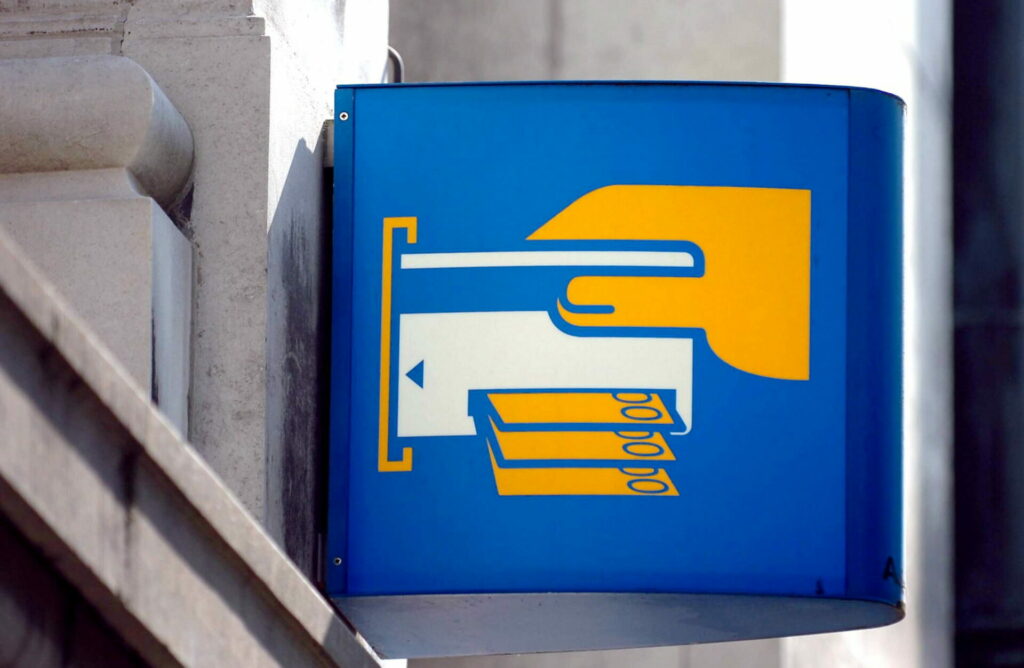Finding an ATM from which to withdraw money has always been notoriously difficult in Brussels, but it is now set to become even harder as the world slowly moves towards cashless societies.
Today, bank branches are keeping less cash for distribution, and anti-money laundering requires regular checks on withdrawals and the use of cash. Furthermore, Belgian financial federations, such as Febelfin, are actively promoting a cashless society.
This was the bind that Belgian citizen Arnold Declercq found himself in after he tried to withdraw €3,000 for an art auction. His bank only had €1,500 on hand, and promised he could collect the rest the week after. Upon requesting €3,000 instead, alarm bells started ringing at the bank.
Declercq had to explain what he needed the money for. “Apparently they didn’t think an art auction was a valid reason. I was then refused every cash withdrawal until further notice!” he tells VRT. “From now on, I was only allowed to request money if I could prove it with an invoice as proof.”
“It’s my money, so why can’t I withdraw it?” he wonders, as he changed banks after the incident.
Duty of vigilance
Febelbin Spokesperson Isabelle Marchand explains that banks have a duty of vigilance in the context of anti-money laundering legislation, meaning that a banker may ask what you intend to do with a large amount of cash.
“That information is intended for internal use and the bank respects the GDPR legislation,” says Marchand. “They simply check whether there is a risk that you will launder that money.”
If there is a suspicion of money laundering, the bank must report this to the Financial Information Unit. “They will look at the file and pass it on to the public prosecutor if necessary,” says Marchand.
In addition, there are daily or weekly limits for withdrawals from the machines, which you can temporarily increase them at most banks. “But very large sums of cash must always be requested and approved.”
Different guidelines
Banks determine how to fulfil this duty of vigilance themselves. “Each case is individually assessed by the bank based on the amount, how often you withdraw money and your customer profile,” Marchand explains. “Banks are allowed to ask you questions about this, but they certainly don’t always do that.”
“The limits can vary: at one bank a red lamp lights up when you request €3,000, at another only from a higher amount. Even those who receive a large amount into their account, often have to let their bank know where that money comes from.”
Related News
- Belgian banks want Belgians to go cashless for one day
- Brussels parliament fears widening social gap if more ATMs close
It is clear: if a lot of cash is involved, a transaction is automatically suspicious for the government. “And you can also ask yourself whether it is necessary to pay large amounts in cash,” says Febelfin.
Better ways to pay
Belgian law states that a trader may accept a maximum of €3,000 in cash, but between private individuals there is no limitation for a cash payment. You can sell your car to another private individual for €20,000 without issues. “If you can prove to your bank what that money is for, you will normally get such a large sum without any problems,” says Marchand.
However, she says there are better ways to arrange large payments, such as a digital instant transfer. “The seller sees the money immediately appear in his account and no one has to walk down the street with such a large sum of money.”
Cashless society
From 1 July, all merchants are required to accept at least one digital payment method. “But which one they'll accept is up to them.”
While cash remains a legal tender, the federation does promote a society with less cash. “Digital payment is safer and has other advantages. Because cash also has a certain cost,” said Marchand.

